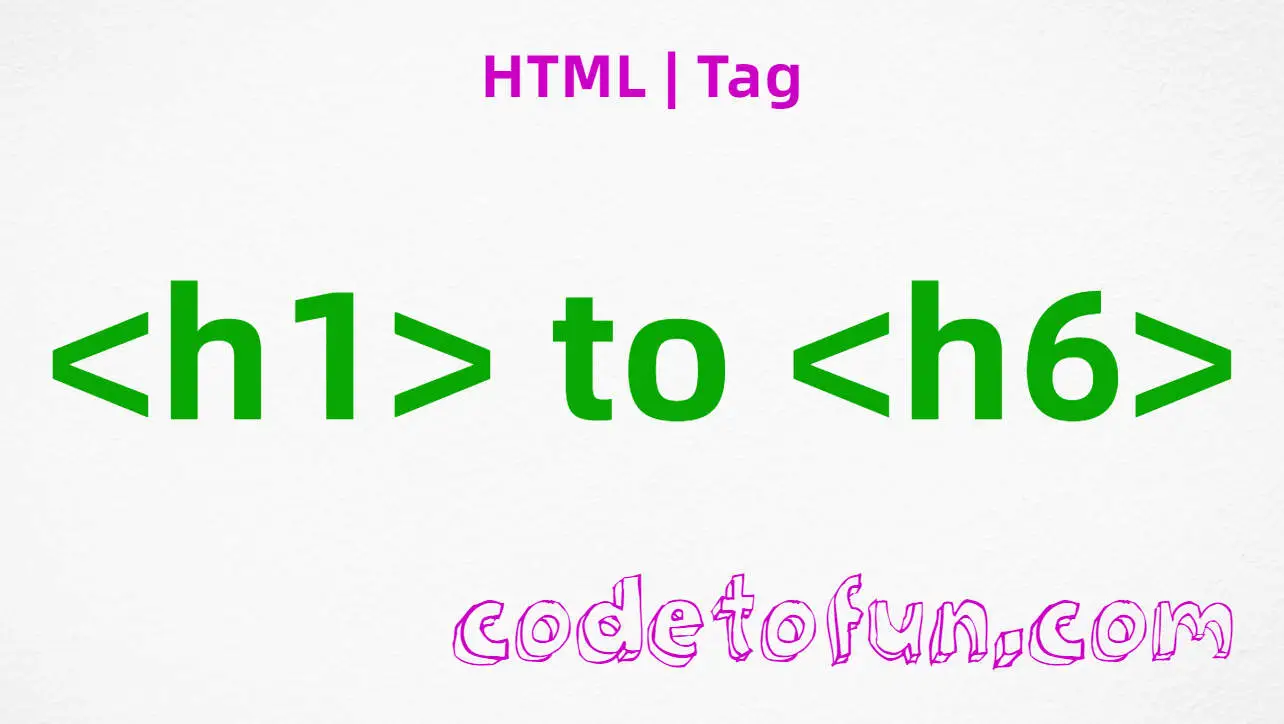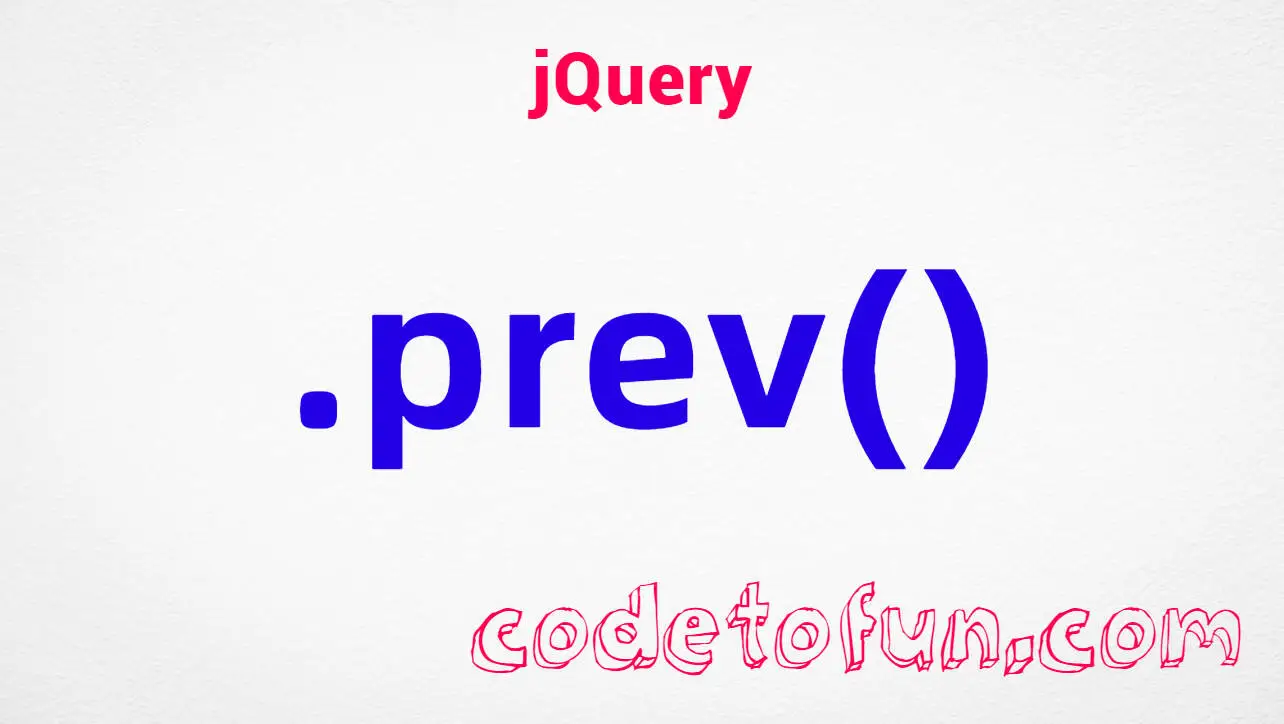
HTML Basic
HTML Reference
- HTML Tags
- <!--...-->
- <!DOCTYPE>
- <a>
- <abbr>
- <address>
- <area>
- <article>
- <aside>
- <audio>
- <b>
- <base>
- <bdi>
- <bdo>
- <blockquote>
- <body>
- <br>
- <button>
- <canvas>
- <caption>
- <cite>
- <code>
- <col>
- <colgroup>
- <data>
- <datalist>
- <dd>
- <del>
- <details>
- <dfn>
- <dialog>
- <div>
- <dl>
- <dt>
- <em>
- <embed>
- <fieldset>
- <figcaption>
- <figure>
- <footer>
- <form>
- <h1> to <h6>
- <head>
- <header>
- <hgroup>
- <hr>
- <html>
- <i>
- <iframe>
- <img>
- <input>
- <ins>
- <kbd>
- <label>
- <legend>
- <li>
- <link>
- <main>
- <map>
- <mark>
- <menu>
- <meta>
- <meter>
- <nav>
- <noscript>
- <object>
- <ol>
- <optgroup>
- <option>
- <output>
- <p>
- <param>
- <picture>
- <pre>
- <progress>
- <q>
- <rp>
- <rt>
- <ruby>
- <s>
- <samp>
- <script>
- <search>
- <section>
- <select>
- <small>
- <source>
- <span>
- <strong>
- <style>
- <sub>
- <summary>
- <sup>
- <svg>
- <table>
- <tbody>
- <td>
- <template>
- <textarea>
- <tfoot>
- <th>
- <thead>
- <time>
- <title>
- <tr>
- <track>
- <u>
- <ul>
- <var>
- <video>
- <wbr>
- HTML Deprecated Tags
- HTML Events
- HTML Global Attributes
- HTML Status Code
- HTML Language Code
- HTML Country Code
- HTML Charset
- MIME Types
HTML audio Tag

Photo Credit to CodeToFun
🙋 Introduction
In the dynamic landscape of web development, the <audio> tag plays a pivotal role in embedding audio content seamlessly into web pages.
This comprehensive guide aims to illuminate the functionalities and best practices associated with the HTML audio tag.
🤔 What is <audio> Tag?
The <audio> tag is a fundamental HTML element used to embed audio content directly into a web page. It provides a standardized way to play audio files without requiring third-party plugins.
💡 Syntax
To incorporate audio content using the <audio> tag, simply specify the source of the audio file within the tag using the src attribute.
<audio src="audio_file.mp3" controls></audio>The controls attribute adds a set of playback controls (such as play, pause, and volume) to the audio player, allowing users to interact with the audio content easily.
🧰 Attributes
The <audio> tag supports various attributes to customize the audio playback experience:
- autoplay: Automatically starts playback of the audio file when the page loads.
- loop: Enables continuous looping of the audio file.
- preload: Specifies whether the audio file should be loaded when the page loads. Values can be none, metadata, or auto.
<audio src="audio_file.mp3" controls autoplay loop preload="auto"></audio>🤝 Supported Audio Formats
The <audio> tag supports a range of audio formats, including MP3, Ogg, and WAV. It's crucial to provide fallback options using different formats to ensure compatibility across various browsers.
<audio controls>
<source src="audio_file.mp3" type="audio/mpeg">
<source src="audio_file.ogg" type="audio/ogg">
Your browser does not support the audio element.
</audio>📚 Common Use Cases
Background Music:
Enhance the ambiance of your web page by incorporating background music using the
<audio>tag.background-music.htmlCopied<audio src="background_music.mp3" autoplay loop></audio>Interactive Multimedia Content:
Create engaging multimedia experiences by embedding audio content alongside other media elements like images and videos.
interactive-multimedia-content.htmlCopied<audio src="narration.mp3" controls></audio>
🖥️ Browser Support
Understanding the compatibility of the <audio> tag across different browsers is essential for delivering a consistent user experience. Here's an overview of its support:
- Google Chrome: Fully supported.
- Mozilla Firefox: Fully supported.
- Microsoft Edge: Fully supported.
- Safari: Fully supported.
- Opera: Fully supported.
- Internet Explorer: Partial support (some versions may have limitations).
Ensure you test your audio content across various browsers and devices to guarantee a seamless experience for your audience.
🏆 Best Practices
- Provide alternative text or content for users whose browsers do not support the
<audio>tag. - Optimize audio files for web playback to minimize loading times and bandwidth usage.
- Test audio playback across different browsers and devices to ensure compatibility and a consistent user experience.
🎉 Conclusion
The <audio> tag empowers web developers to integrate audio content effortlessly, enriching user experiences and enhancing the interactivity of web pages. By leveraging its capabilities and adhering to best practices, you can create immersive multimedia experiences that captivate and engage your audience.
👨💻 Join our Community:
Author

For over eight years, I worked as a full-stack web developer. Now, I have chosen my profession as a full-time blogger at codetofun.com.
Buy me a coffee to make codetofun.com free for everyone.
Buy me a Coffee












If you have any doubts regarding this article (HTML audio Tag), please comment here. I will help you immediately.